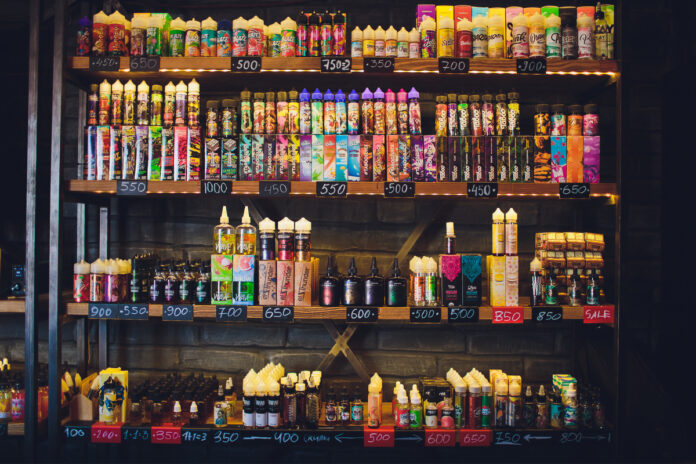WORCESTER, Mass. – The Massachusetts Cannabis Control Commission (CCC) this week announced it will release vape products that had been quarantined by the state as a result of last year’s EVALI crisis.
The order to lift the quarantine on 619,362 items was stipulated in the Second Amended Quarantine Order for Vaporizer Products, issued on Monday by the CCC. The quarantine was imposed in mid-November, though newly manufactured vape products have been available in Massachusetts since mid-December.
Researchers pointed out Vitamin E acetate, a common thickening agent used to increase volume in consumable supplements and food products, as the possible culprit in EVALI (e-cigarette- or vaping-associated lung injury) cases, which may have produced a toxic reaction when super-heated in the vaping process.
The products held in state custody have been tested by independent analysts to determine that they do not contain Vitamin E acetate, according to a CCC statement. However, they may contain other harmful contaminants, including heavy metals. Reclaimed products must be re-tested by licensed manufacturers for compliance and re-labeled as such, if they are to be resold.
“Fortunately, repeat tests of licensed product samples did not return any detectable levels of [vitamin E acetate]; unfortunately, they did establish that heavy metal contamination may increase in vaping products over time,” CCC Executive Director Shawn Collins said.
Manufacturers also can choose to dispose of the products, or repurpose the inventory into new product, with compliant testing and labeling. Products that were tested by the state and found to contain contaminants have been deemed non-compliant and are not able to be “remediated.”
“This new order seeks to strike a balance between those products that can be retested or remediated safely for sale or repurposing with proper warning to patients and consumers, and those that cannot. As the nation continues to learn more about the broader health implications of vaping in all forms, I urge patients and consumers to understand the risks when they choose to consume any cannabis vaporizer product,” Collins added.
The stockpile includes legal products that were quarantined, as well as illicitly produced items, from the period between September 25 and December 12, 2020.
EVALI was a mystery when the first cases appeared in the U.S., in mid-August. Eventually, the condition was tied to use of vape products that may have contained dangerous additives or contaminants, often manufactured by illicit producers.
Researchers from various hospitals, universities, the Centers for Disease Control and Prevention (CDC), and other federal agencies took part in a multi-state investigation. Cases of EVALI were eventually found in all fifty states. By September, the emergency had peaked. Several states imposed bans on vaping, including Massachusetts, which went a step further by placing a ban on flavored tobacco and vape products.
More than 2,800 deaths had been attributed to EVALI by February, when the CDC ceased to post its weekly updates.
In related news, e-cigarette company Juul filed a premarket tobacco product application (PMTA) with the Food and Drug Administration (FDA) on Thursday, which would grant approval for the company to continue selling its e-cigarette products and growing tobacco in Virginia.
The popular brand was hard-hit by the vaping crisis, as well as accusations by anti-smoking proponents that fruit-flavored Juul pods were attracting underage smokers. Juul pods now come only in tobacco and menthol flavors, after the FDA banned flavored tobacco products last year.
The company said in the application that their product provides a safe alternative for adults that enjoy vaping or are trying to quit smoking conventional cigarettes. They also described initiatives and research the company said will specifically address the issue of underage vaping.
Manufacturers of tobacco vape products are obligated to periodically file a PMTA application with the FDA, though this year’s deadline for applications has been extended to September 9, due to the COVID-19 crisis.











